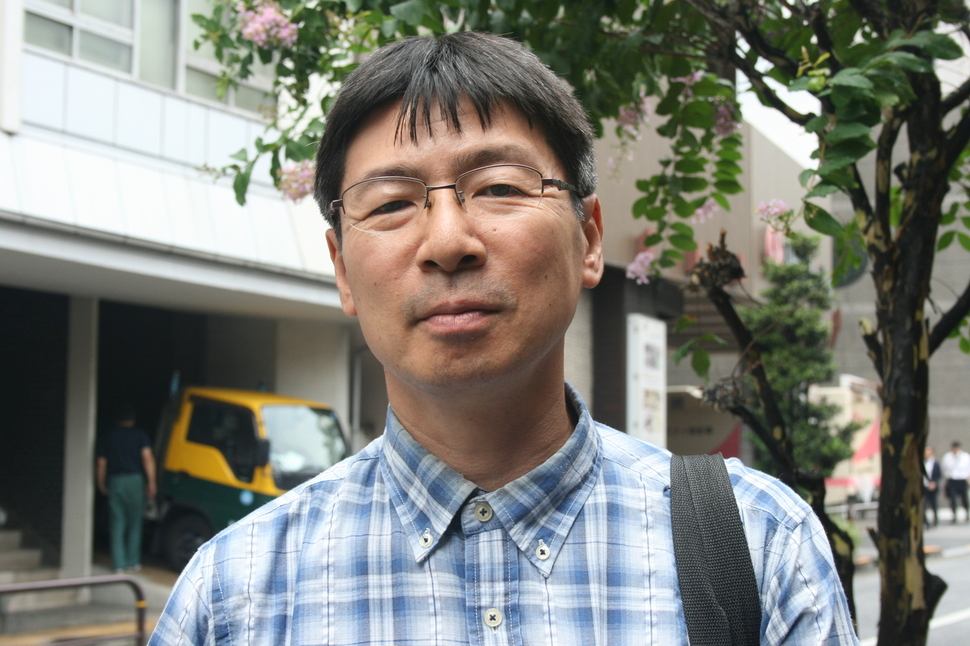 |
|
Prof. Fumitoshi Yoshizawa
|
Prof. Fumitoshi Yoshizawa of Niigata Univ. of International and Information Studies and author of “1965 Japan-Korea Summit” book
“An attitude of acknowledging responsibility for colonial rule is ultimately necessary for Japan in its relations both with South Korea and with North Korea, which it is attempting to negotiate a normalization of diplomatic relations with. Without that kind of attitude, it will be difficult to make a fresh start [in relations with the Korean Peninsula].” Fumitoshi Yoshizawa, a professor of sociology at Niigata University of International and Information Studies who wrote the book “Japan-Korea Summit 1965” on the process behind the 1965 South Korea-Japan Treaty on Basic Relations and associated Claims Settlement Agreement, named the issue of responsibility for colonial rule as the key factor in the deterioration of South Korea-Japan relations. Meeting with the Hankyoreh in Tokyo on Aug. 27, Yoshizawa explained, “The ‘1965 system’ [set in motion by the Treaty on Basic Relations in 1965] was a system that did not hold [Japan] accountable for colonial rule.” “If you go on the Japanese Foreign Ministry homepage, it is written as though the Japanese government bears no responsible for the Japanese military comfort women issue or the [forced] labor conscription issue,” he said. “This is echoed in the claims that the colonial occupation was not illegal by international law. That attitude is a step backward even from the Murayama statement [apologizing for colonial rule in 1995],” he added. According to Yoshizawa, Japan only acknowledged responsibility for the war in its Treaty of San Francisco with the US and other Allied Powers in 1951, without acknowledging responsibility for colonial rule either in that treaty or in the lower-level Treaty on Basic Relations with South Korea in 1965. “An acceptance of responsibility for the colonial occupation was demanded at the Durban Conference [to discuss racism and acts of past aggression including colonial rule] in South Korea in 2001,” he explained. “The problem is going to continue during this century,” he predicted, calling the South Korean Supreme Court ruling on conscripted labor “part of this historical trend.” With its ruling on the forced labor conscription issue, the South Korean Supreme Court was “ordering [the company] to compensate for damages resulting from illegal actions by Japan,” he explained. “[On that basis] the argument could be made that damages resulting from illegal actions caused by Japan’s colonial occupation fall outside the scope of South Korea-Japan agreements,” he said. While some have described relations between Seoul and Tokyo as being at their worst since normalization in 1965, Yoshizawa said this was not true in a general sense. “The number of South Korean tourists visiting Japan has been dropping recently, but last year there were seven million people who visited Japan from South Korea and three million who visited South Korea from Japan. Those are the highest numbers since relations were normalized,” he noted. “Communication may not really be happening between diplomatic authorities, but Japan-South Korea relations have reached a point where there’s enough trust built up to talk about things with each other, if you include the level of citizens,” he said. “That doesn’t fit with the whole ‘worst ever’ label,” he added. At the same time, he said, “It is by no means a good thing to have violence like the assault of a Japanese woman that happened in South Korea.” Remarking on the deterioration in bilateral relations, Yoshizawa said, “I think the progress made in inter-Korean relations and North Korea-US relations has played some part in the matter expanding into the realm of security issues.” “There’s also an element of Japan trying to keep that in check,” he explained. Regarding the prospects for South Korea-Japan relations going forward, he predicted that the export controls issue could die down, but added that historical issues would remain to be addressed. “The question is how much the Japanese government and companies can confront historical issues like conscripted labor,” he said. By Cho Ki-weon, Tokyo correspondent Please direct comments or questions to [english@hani.co.kr]






